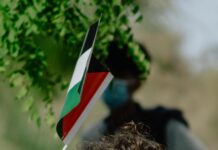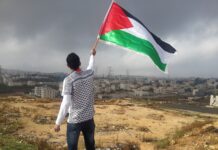Ramadan begins sometime in mid-April. Yet, as discussions continue about the exact date and which calendar we follow, little to no literature exists on how we can support Muslim teachers and students in schools. The global pandemic has seen seismic shifts in our social interactions and Ramadan this year will be like no other. The aim of this article is to use lived experience to shed light on the month of Ramadan. I also wish to provide some practical steps to support those who are participating in the annual fasting tradition.
This is a second Ramadan in lockdown, Eid in 2020 was ripped away from us at the last minute and, of course, there’s suspicion over the intentions of this government. Yet, a conversation where we can bridge a disconnect is what the imam ordered.
Unconscious biases and uncomfortable truths
Although Ramadan does mean different things to different people and evokes differing feelings for different people, it is a very special month for Muslims. It is a wide consensus that every fit, able-bodied adolescent completes fasting during the month of Ramadan. It is a time of reflection and reconnection. This really is more than just avoiding food and drink.
Yet, fasting is not easy. Working in a fast-paced environment, where you are in a continuous need to replenish your energy levels, can be challenging. For our students also, many of whom have the exam season, SATs or simply a busy school day running side-by-side with Ramadan can be difficult. From personal experience, I have struggled with fatigue, light-headedness and dehydration whilst teaching during Ramadan. As a student, doing cross-country in the 25 degrees Cambridgeshire sunshine, it was awful. At a time where we are beginning to hold meaningful conversations about anti-racism, inclusion, diversity, and equality, how can we support our Muslim colleagues and students during Ramadan?
Before we begin, there some common misinterpretations we do need to challenge. These are a collection of comments many Muslims teachers and students have heard and do need to be carefully and sensitively unpicked. Unconscious biases exist in almost every micro-interaction, but we challenge these, in collaboration. I would only like to focus on the two because the overtones of this piece are about proactive steps forwards.
“Not even water?”
I was sat in a staffroom and an overly eager member of staff offered me a coffee during Ramadan. I politely replied, “No, thank you. I am fasting.” Her reply, “Tea?” Albeit, very funny to begin with, I did explain that fasting does prohibit the consumption or food and water between sunrise and sunset. This member of staff repeatedly said, “What? Not even water?” Many Muslims will admire the curiosity, naivety and yes, they will pardon unconscious biases because that is what Islam teaches – to love all.
However, we must be wary that some do find it unnerving and tiring to repeatedly correct others and almost justify their belief. Context is of great importance here. If you know that member of staff or that student well, then you can pitch questions and learn from them. We must be careful in not making our Muslim colleagues or students the epicentres of knowledge. We are all still learning, and religiosity, practice and belief can vastly vary from one person to another. Again, context is key. Getting to know your staff and students, and striking rapports with them, can break the ice before sensitive conversations take place.
“Is it healthy?”
My friend was repeatedly asked by his Head if fasting during Ramadan was healthy. This was very uncomfortable and when his Head asked him not to participate in Ramadan, he was visibly upset. Does fasting impact on your performance at work? What if he didn’t disclose that he was fasting, would that have been better or worse?
Muslims have been fasting since the 7th Century and even today, health fads like intermitted fasting have their own intellectual veneer. Ramadan isn’t about food, we can cope without brie and grape sandwiches! From a wellbeing point of view, you can see where this comment is coming from but to then ask this member of staff and later tell parents that fasting could be a “distraction”, this simply seeps with insensitivity and Islamophobia.
Fasting allows Muslims to reflect, cleanse their mind, body and soul. Again, your context is key. Supporting your students and staff during Ramadan requires some soul searching. As an able-bodied adult like my friend, his personal beliefs and practices do should not be so frivolously challenged. There is still so much work to do hence why we are having this conversation.
How can we support Muslim staff and students?
These are not all-encompassing or exhaustive ways we can support Muslim students and staff. However, this begins a conversation that is necessary as we approach Ramadan.
1. Self-disclosure
As challenging and as uncomfortable as it may be, I believe if we want a society that is inclusive and accepting, people need to feel comfortable enough to disclose that they are participating in Ramadan. In the times we live in, even telling people that you are a Muslim can be difficult. I cannot tell you the number of times I have ignored the religion question or refused to state my religion on an application form. Sometimes we have loaded assumptions about what others think about us which can mar our interactions with them.
However, as the movement towards greater appreciation and celebration of diversity slowly trickles into society, the responsibility is on us to disclose our religious practices that can potentially make some elements of our role more challenging. Once we have had this conversation, the onus then becomes on our employers to support us. Waiting around for people to notice or a token mention in a whole staff email doesn’t cut the jalebis! Often, acknowledgement is the precursor to understanding and acceptance.
2. Asking rather than assuming
When a month like Ramadan comes along, there are common misconceptions, as well as scope for questions and curiosity. From personal experience, it can be both a blessing and a burden to be asked about your beliefs and constantly allow others to project their subjective views onto your faith. Most Muslims will be open, willing to take questions and rather you ask than make a misleading assumption.
However, this needs to be done sensitively. Curiosity is admired, welcomed and vital. Yet, when Muslim staff are asked to lead an assembly on Ramadan or students are given a day off to celebrate Eid, this isn’t inclusion. Why ignore their faith until it enables you to tick an inclusivity box? Why have an assembly about Ramadan when, for example, Islamophobia remains unchallenged across your institution? Yes, inviting conversations about religious festivals and customs is important but your experts are not always your students and staff. Assuming they are spokespeople on all matters Islam, this tendency is the reason why there is so much division.
We are at the mercy of a technological revolution. Information is available at an instant. There is no excuse not to be informed and the time you take out to develop an understanding of others, it will be reciprocated someday. Asking rather than assuming is a key way to support Muslim students and staff during Ramadan.
3. Making necessary adjustments
When you are fasting, naturally the day feels longer and your energy levels are lower. As inclusive hubs, schools must work collectively with their staff and students to create an ethos that empowers and gives a voice to everyone. During Ramadan, I have completed duties in the school canteen, been offered food and drink, asked to cover lessons in different parts of the school building and even compete in a sports day with my form class. If we are looking at teacher wellbeing and using the praxis of physical, emotional and spiritual wellbeing, what adjustments were made for me during Ramadan?
I have a colleague who was asked to support practical Food Technology lessons during Ramadan and my nephew who is in sixth form has told me of the frustrations that his school prayer room being next to the loud Music room. Schools can make adjustments, not just during Ramadan but in how they welcome adults and young people from all walks of life. The number of schools I have visited that don’t even have adequate access for wheelchairs; it fills you with despair. We can make those adjustments, offer to do a duty for someone, avoid offering them food or drink, and really change our perceptions and have meaningful interactions with others. This is a journey and one that we can take together. The small, rather banal and nuanced adjustments we can make really can make a massive difference.
As a member of staff, you may begin to see Muslim teachers begin to wear headscarves or seek a place to pray. Before Ramadan, they may not have had the consciousness or courage to express an important element of their faith. This is often met with suspicion and apprehension but we got to understand the significance and weight of Ramadan. It’s an exceptionally special time to become closer to your faith. Allowing staff to pray, giving them a key to lock their door whilst they pray, acknowledging their needs – as a good friend told me – “isn’t about moving mountains, it’s about raising consciousness.”
Also, we need to also accept that some students and staff may not observe fasting during Ramadan. Again, this needs to be addressed sensitively, too. Some Muslim teachers may find it difficult to catch up with the latest teaching and learning fad or Tes article. This is an opportunity to become closer to our Lord. Society needs to understand this and we need to embrace this. Time and space really is everything. Schools need to reflect on inclusivity, empower their staff and make provisions available.
In Summary
The holy month of Ramadan dawns upon us again and provides us all with plenty of food for thought. If anything, I hope this article gives you an honest opportunity to reflect any for many, it will resonate very closely. Tackling and addressing unconscious biases takes learning and also unlearning, healing and also collaborating. Our Muslim colleagues and students need for us to be informed and inclusive. If you can, offer to do that duty, be curious but sensitive, seek to understand rather than pass judgement. We can all learn from one another. We all need to be part of this conversation. Everyone from our students, to TAs, to HR. Inclusive practices are not peripheral entities, they are a cultural change based upon mutual respect and understanding.
To everyone reading, Ramadan Kareem (may Ramadan be generous to you). My sincerest apologies for any mistakes I have made during the course of this writing. All mistakes are my own.
Thank you for reading.
And yes, not even water.
Check out https://www.notevenwater.com to learn more about the Muslim month of Ramadan, how you can help a fasting Muslim and why Muslims don’t eat or drink anything – not even water!












